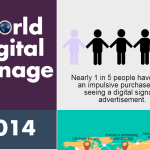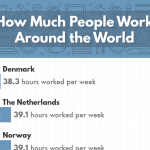
Mobile development is growing at an explosive pace, so explosive in fact, that it might soon end up leading to a scenario in which the use of mobile internet and all its associated applications completely outstrips conventional web use through PCs and laptops.
As of early 2012, there were some 1.6 billion mobile subscribers with access to wireless internet over either 3G networks, WiFi or 4G services worldwide. This means that more than three quarters of all internet users have access to the system through their wireless devices in some form or another. Of these 1.6 billion, at least 60 to 80% regularly browse the internet through their phones or other wireless devices and at least 30% do so exclusively.
This expanding marketplace of wireless access platforms is only growing as more and more of the world’s mobile phones are being replaced by touchscreen devices that have much greater multimedia interactivity. Additionally, tablets are also pushing their way onto the landscape and at least in the developed nations, their ownership numbers in the hundreds of millions; this too is expanding in the developing world.
Several major factors are contributing to this exponential growth.
– First, mobile technology is improving dramatically while becoming massively cheaper at the same time, allowing more to be done with ever smaller mobile devices, making them into what are essentially pocket sized computers. (More on this shortly)
– Second, wireless data transmission technology is also improving enormously. Previously weak cellular networks that allowed only basic voice communications have been replaced by packet switching enabled networks that work much like landline internet connections. The end result being that much more data and multimedia can now be transmitted fluidly to wireless machines that are at the same time ever more capable of handling such information processing and rendering.
– Second, the entire concept of mobile technology, especially with the advent of powerful tablet PCs, is absolutely convenient for the billions of people worldwide who are constantly on the go.
– Third, as the developing world moves deeper into the digital age, the infrastructure to maintain this forward movement is leapfrogging numerous stagnant and badly developed big communications utilities. Instead, people are moving directly from having no access to computers and internet straight into connecting to very cheap and easily expandable wireless networks through mobile phones. The reasoning behind this is pure practical economic logic.
What these Mobile Technology Trends mean for Technology Business Small or Large
Thanks to the abovementioned trends, an entire mobile industry is exploding to meet the immense and growing demand for mobile websites, mobile web interfaces and numerous extremely varied web based applications that can do all sorts of things. Business’ now often rely on technologies that are solely mobile. Often professionals will connect with video conferencing apps and platforms from companies like Skype and InterCall in order to attend a meeting. Sometimes, participants in these web conferencing meetings are in completely different countries at the time. Large numbers of organizations are embracing the mobile technologies that are widely available.
And we’re not talking about any kind of small numbers; the number of websites that now also have mobile versions of themselves or are exclusively mobile phone based numbers in the hundreds of millions. At the same time, the number of mobile device apps available for the two major phone based operating systems Android from Google and iOS from Apple currently sits at nearly 4 million, and there are other apps platforms out there in addition to these two giants.
The obvious effect on businesses that are riding this technology explosion is wave after wave of extraordinary opportunity. Despite the vast existing numbers of apps, the demand for more is seemingly unstoppable and while hundreds of millions of mobile websites exist, billions more are still waiting for conversion.
Furthermore, since mobile development is still a relatively new technology, it hasn’t yet been heavily simplified and standardized into out-of-the-box systems like conventional web design already has. This means that the demand for deeply skilled mobile developers is still very high because they are very much needed to get projects off the ground. Both tiny startups and multibillion dollar corporations are cutting away large pieces of the pie.

Startups
Mobile development is deeply labor intensive but not resource intensive. Any small team of talented programmers with minimal funding and few material resources can quickly get a web development startup off the ground in no time; even if coding time is included, many companies are putting excellent apps and site platforms out onto the market in just weeks in some cases.
What makes this mobile market participation even more accessible to startups is the fact that the giant apps markets like the iTunes Store and Android Market are all open to commission based admission of new apps from almost anyone quickly and easily. This alone has allowed many small app and mobile innovation teams to make a name for themselves and succeed dramatically in this new industry landscape.
Sometimes, a newly developed mobile app can even garner so much popularity that the big players on the internet offer to buy it from its original small developer; an example being Instagram, which was sold by its small team of developers to Internet giant Facebook for 1 billion U.S dollars in 2011.
The entire mobile development trend is what’s both making this vast startup landscape possible while at the same time being built by these same startups.
Major Companies
Of course, while startups are benefiting enormously from having a whole new opportunity market evolve around them, the big players are reaping the benefits too. From major phone manufacturers like Apple, Samsung, Research in Motion (Blackberry) and others to major online platforms like Facebook and Twitter, all of them are garnering more customers, more users and more revenues as a result of the fact that more and more people worldwide are looking for easy access to the web over mobile devices that they carry everywhere with them, generating content and participating on the web.
For multinational corporations, the existing trends in web development represent a growing mesh of several different multibillion dollar industries -computing, software, gaming, online advertising and social networking to name a few—that are meshing together in ways that offer all sort of entries for new innovation and new business.
Stephan Jukic is a freelance writer who generally covers a variety of subjects relating to the latest changes in white hat SEO, mobile technology, marketing tech and digital security. He also loves to read and write about location-free business, portable business management and finance. When not busy writing or consulting on technology and digital security, he spends his days enjoying life’s adventures either in Canada or Mexico. Connect with Stephan on Google+ and LinkedIn.















